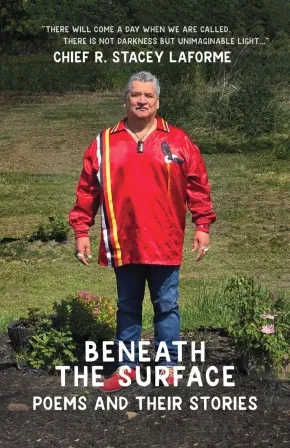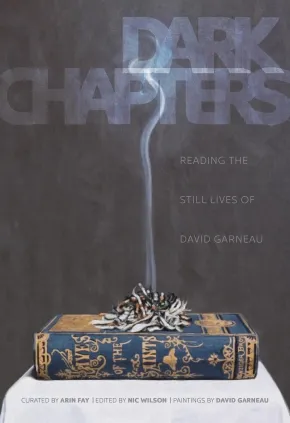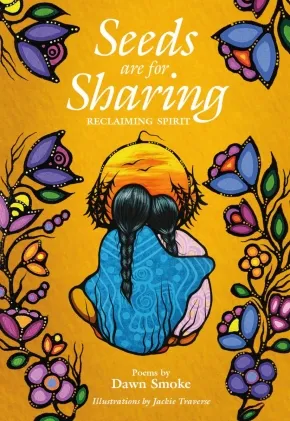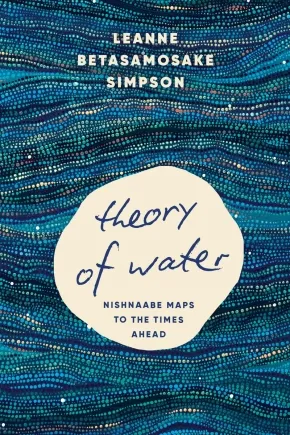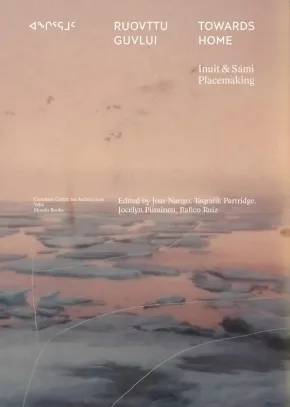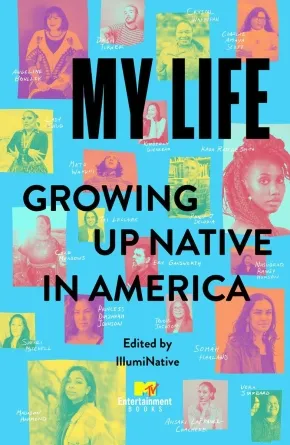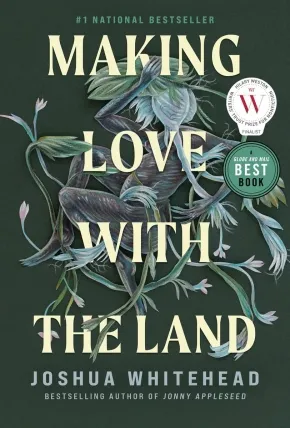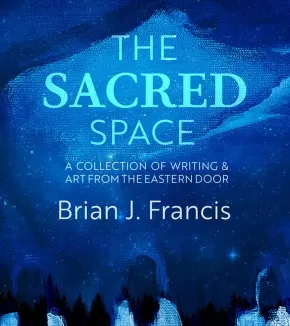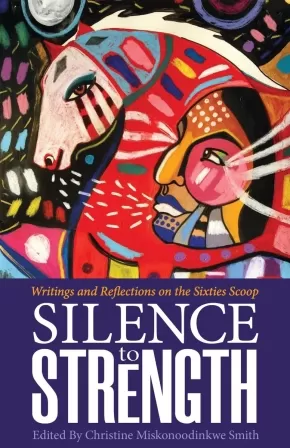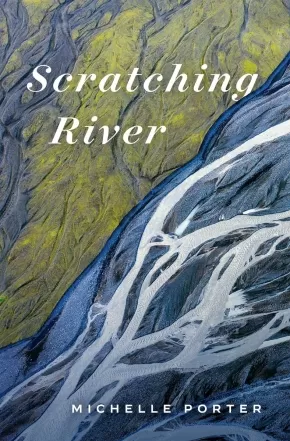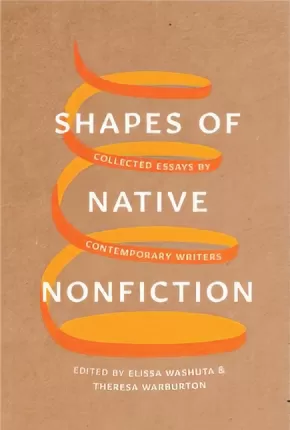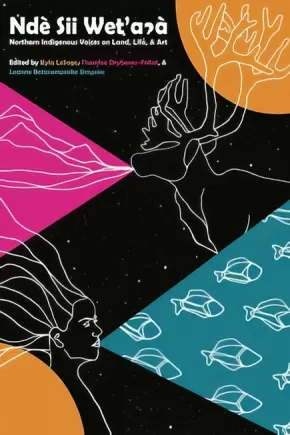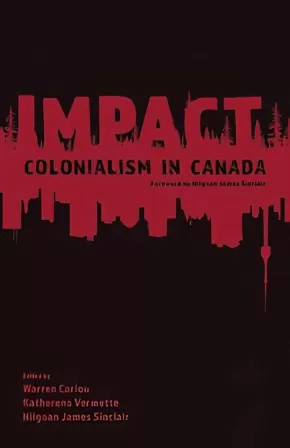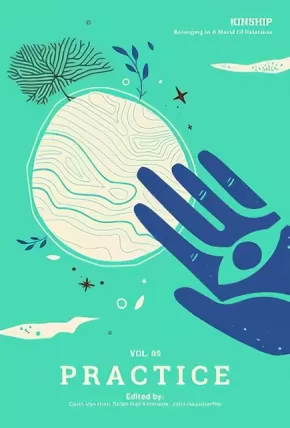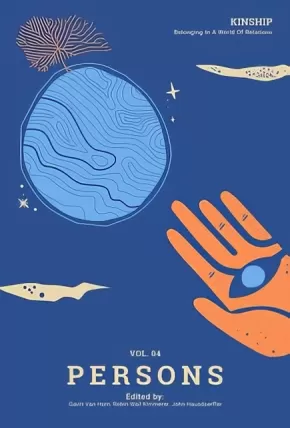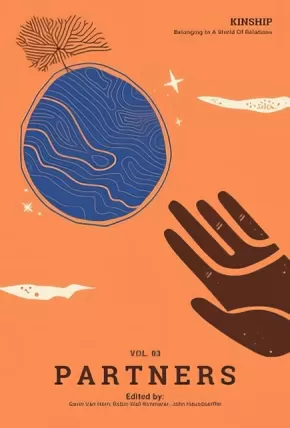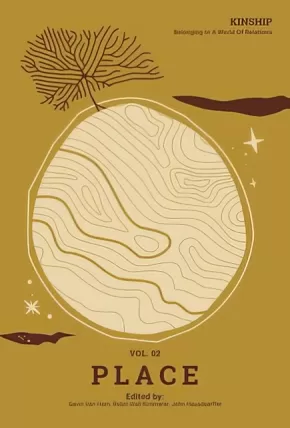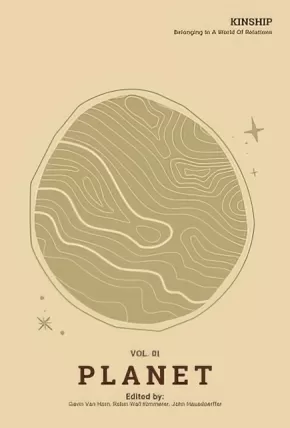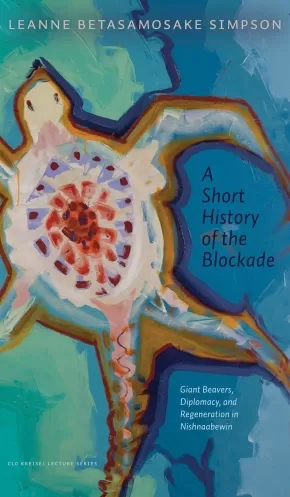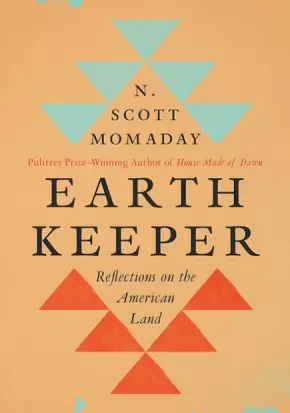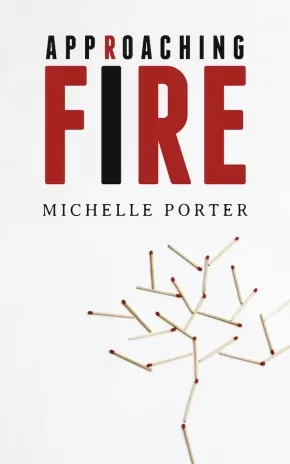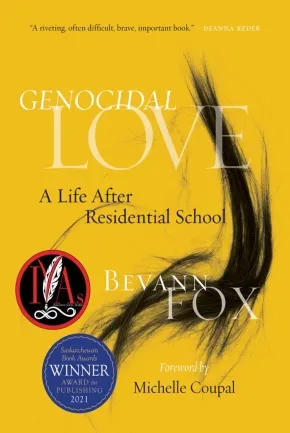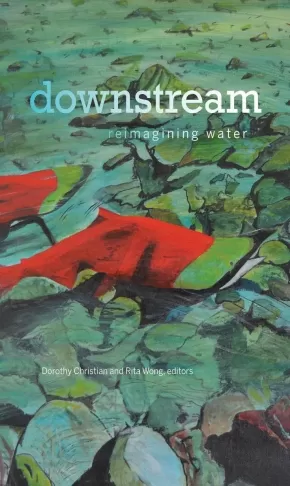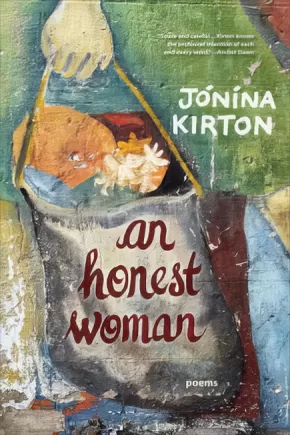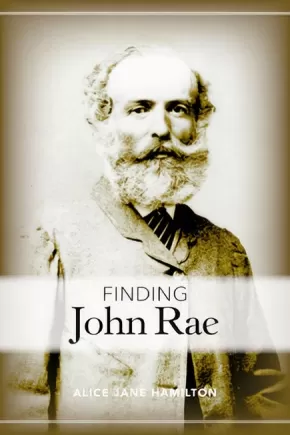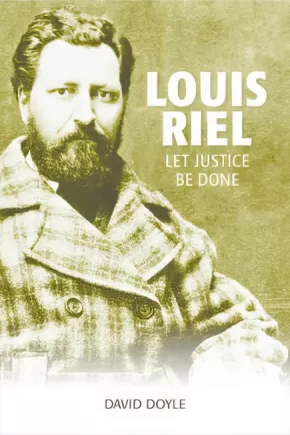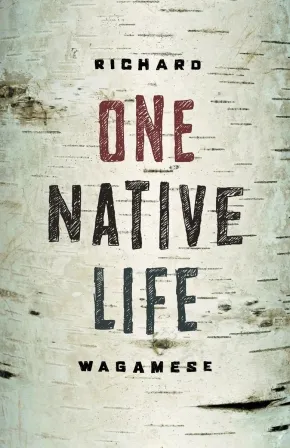
Creative Non-fiction
1
-
15
of
33 Results;
Sort By
Go To
of 3
Beneath the Surface: Poems & Their Stories
$29.95
Format:
Paperback
Text Content Territories:
Indigenous Canadian; First Nations; Anishinaabeg; Ojibway; Mississaugas;
ISBN / Barcode: 9781990735875
Synopsis:
Synopsis:
Chief Stacey Laforme, an esteemed Indigenous leader and storyteller, breathes life into every poem and story, drawing upon his deep cultural roots. Rich with the essence of his soul, the poems in Beneath the Surface capture the moments and emotions that have shaped him, offering a poignant exploration of identity, resilience, and hope. Through humour and pain, Laforme invites readers to not just read, but to truly feel the weight and wisdom carried within each verse.
This collection goes beyond poetry, providing rich backstories and leadership insights that contextualize the verses. As in his earlier collections, Living in the Tall Grass and Love, Life, Loss and a little bit of hope, Laforme once again extends an invitation to readers, encouraging them to see the world through Indigenous eyes. Themes of peace, humanity, grief, and trauma are woven throughout the book, creating a tapestry of reflection, healing, and ultimately, hope.
Beneath the Surface serves as both a deeply personal reflection and a call for greater understanding and connection, illuminating the complexities of life through the lens of Indigenous wisdom and storytelling.
At the end of this book, this journey, Laforme seeks to help you better answer the following questions. Who was I, Who am I, and Who do I want to be? As a person, a people, a country, a world, who do we want to be?
Additional Information
192 pages | 8.50" x 5.50" | Paperback
Dark Chapters: Reading the Still Lives of David Garneau
$32.95
Artists:
Editors:
● Arin Fay
Format:
Paperback
Text Content Territories:
Indigenous Canadian; Métis;
ISBN / Barcode: 9781779400536
Synopsis:
Synopsis:
A singular collection of responses to the still life paintings of acclaimed artist David Garneau
Dark Chapters brings together 17 poets, fiction writers, curators, and critics to engage with the works of David Garneau, the Governor General’s Award-winning Métis artist. Featuring paintings from Garneau’s still life series “Dark Chapters” alongside poetry, fiction, critical analysis, and autotheory, the book includes contributions from Fred Wah, Paul Seesequasis, Jesse Wente, Lillian Allen, Billy-Ray Belcourt, Larissa Lai, Susan Musgrave, and more.
A nod to the Reports of Truth and Reconciliation Commission, in which Justice Murray Sinclair describes the residential school system as “one of the darkest, most troubling chapters in our nation’s history,” Garneau’s still life paintings combine common objects (books, bones, teacups, mirrors) and less familiar ones (a Métis sash, a stone hammer, a braid of sweetgrass) to reflect the complexity of contemporary Indigenous experiences. Provocative titles like “Métis in the Academy” and “Smudge Before Reading” invite consideration of the mixed influences and loyalties faced by Indigenous students and scholars. Other paintings explore colonialism, vertical and lateral violence, Christian influence on traditional knowledge, and museum treatment of Indigenous belongings.
Rooted in Garneau’s life-long engagement at the intersections of visual art and writing, Dark Chapters presents a multifaceted reflection on the work of an inimitable, unparalleled artist.
Includes contributions from Arin Fay, Billy-Ray Belcourt, Cecily Nicholson, David Howes, Dick Averns, Fred Wah, Jeff Derksen, Jesse Wente, John G. Hampton, Larissa Lai, Lillian Allen, Paul Seesequasis, Peter Morin, Rita Bouvier, Susan Musgrave, Tarene Thomas, and Trevor Herriot.
Reviews
“A smart collection of art and essays, Dark Chapters activates deep conversations about art, resistance, and sovereignty. Visiting with paintings by Métis artist David Garneau, seventeen poets, curators, and thinkers offer complex provocations that trouble and activate new forms of communities and relationships.” —Dr. Carmen Robertson, Canada Research Chair in North American Indigenous Visual and Material Culture
“Provocative, probing, and precarious, Dark Chapters pairs the poetic, literary, political, and critical responses of seventeen authors with the deceptively uncluttered yet gravid and combustible still lifes of David Garneau. This collection of pictures and words undertakes a necessary examination of the uncanny oppositions and disquieting literal and symbolic inversions that signify and animate the Indigenous history of Canada.” —Bonnie Devine
“Dark Chapters is a lesson in relationality and innovation. Built through conversations between Garneau’s work and artists/writers, the intergenerational contributors to this book come together in relation to Garneau and his still lives to explore the important contribution the artist has made to Canadian, Indigenous, and International art.” —Erin Sutherland
Educator Information
Table of Contents
Foreword
Nic Wilson
Still Life
John G. Hampton
Stone and Rock: I Have Failed You
Peter Morin
Wander Carried
Cecily Nicholson
On Kinship
Paul Seesequasis
Learning from Indigenous Academic Solidarity
Jeff Derksen
Knock Knock
Lillian Allen
Unsettling the Colonial Gaze
Trevor Herriot
Smudge Before Reading and The Land Does Not Forget
Tarene Thomas
Confession (after David Garneau) by Rita Bouvier
Fuse and Formal and Informal Education
Jesse Wente
The Problem with Pleasure
Billy-Ray Belcourt
Métis Realism: On the Materiality of Smoke and Relationality of Rocks
David Howes
Allies (after Hsieh and Montano)
Larissa Lai
Ally Tear Reliquary
Arin Fay
Understanding Attempted Enlightening: Between Language as Power…and Light as Life
Dick Averns
Spine
Fred Wah
The Resting Heartbeat of a Wounded Bird
Susan Musgrave
Gallery
About the Artist
About the Curator
About the Editor
About the Contributors
List of Artworks
Index
Additional Information
160 pages | 6.50" x 9.50" | 58 colour illustrations | Paperback
'Québec Was Born in My Country!': A Diary of Encounters between Indigenous and Québécois Peoples
$32.99
Artists:
Format:
Paperback
Text Content Territories:
Indigenous Canadian;
Reading Level: N/A
ISBN / Barcode: 9781771126779
Synopsis:
Synopsis:
In 2004, settler scholar Emanuelle Dufour became aware of a “silence” with regard to residential schools and ongoing colonialism, systemic racism, inadequate curricular material in schools, and sought to find answers by meeting with community members, Elders, spokespeople, students, professionals, families, and many others.
Dufour is an artist at heart, and the product of her findings became a “carnet de rencontres,” a notebook of coming-togethers, in which her fifty+ interlocutors are rendered “speaking,” quite literally, on and within the pages, while advocating for the importance of Indigenous cultural security within the education system. Their presence is undeniable, and their voices carry the narrative.
Originally published as C'est le Québec qui est né dans mon pays!, this translation creates a bridge, from one colonial language to another, that will enable conversations across and beyond spaces and languages. It aims to shed light on colonial mainstream narratives in Canada and, more precisely, in Québec, by considering the politics of linguistic hegemony and the double exiguity that Indigenous peoples often find themselves in, calling for a better understanding of how the province’s specific colonial history has had a profound and continued impact on its 11 Indigenous Nations. This book’s unusual (academically-speaking) form as a “carnet”, or diary, becomes an anthology of statements of witnessing, which, coupled with the illustrative narrative, bears its decolonizing mission. Quebec Was Born in My Country! ultimately is about foregrounding common and collective experiences, with the crucial goal of furthering education.
Educator & Series Information
This graphic novel that explores colonial history in Québec is part of the Indigenous Imaginings series.
Translated by Sarah Henzi.
Additional Information
216 pages | 9.00" x 12.00" | Paperback
Seeds are for Sharing: Reclaiming Spirit
$20.99
Artists:
Format:
Paperback
Text Content Territories:
Indigenous Canadian; First Nations; Anishinaabeg; Ojibway; Haudenosaunee (Iroquois); Kanyen'keha:ka (Mohawk);
Reading Level: N/A
ISBN / Barcode: 9781778540592
Synopsis:
Synopsis:
"Never let anything or anyone stop you from following where your Spirit says it belongs. . ."
Spirit exists in everything on Mother Earth. If we are open to it, Spirit may guide us through even the darkest of moments.
In this genre-defying blend of poetry and story, Ojibway and Mohawk Elder Dawn Smoke shares all that lives within her heart, mind, and soul. As a young girl confronted with the anger and pain of being scooped from her birth family, Dawn bravely discovers her truth and a path towards healing. She is unwavering in her honesty, a protector of Mother Earth, and a fierce advocate against the oppression of Indigenous people.
Reclaiming what was taken is not an easy feat, yet in doing so, Dawn illuminates the Spirit all around us. This striking memoir, told in spoken word, speaks to the devastating realities of colonization and radiates with the resilience found within culture and community.
Additional Information
120 pages | 5.50" x 8.00" | Paperback
Theory of Water: Nishnaabe Maps to the Times Ahead
$35.00
Format:
Hardcover
Text Content Territories:
Indigenous Canadian; First Nations; Anishinaabeg; Ojibway; Mississaugas; Alderville First Nation;
Reading Level: N/A
ISBN / Barcode: 9781039010246
Synopsis:
Synopsis:
Acclaimed Nishnaabeg writer Leanne Betasamosake Simpson takes a revolutionary look at that most elemental force, water, and suggests a powerful path for the future.
A genre-bending exploration of that most elemental force-water-through Indigenous storytelling, personal memory, and the work of influential artists and writers.
For many years, Leanne Betasamosake Simpson took solace in skiing--in all kinds of weather, on all kinds of snow across all kinds of terrain, often following the trail beside a beloved creek near her home. Recently, as she skied on this path against the backdrop of uncertainty, environmental devastation, rising authoritarianism and ongoing social injustice, her mind turned to the water in the creek and an elemental question: What might it mean to truly listen to water? To know water? To exist with and alongside water?
So began a quest to understand her people's historical, cultural, and ongoing interactions with water in all its forms (ice, snow, rain, perspiration, breath). Pulling together these threads, Leanne began to see how a "Theory of Water" might suggest a radical rethinking of relationships between beings and forces in the world today. In this inventive work, Simpson draws on Nishnaabeg origin stories while artfully weaving the work of influential writers and artists alongside her personal memories and experience--and in doing so, reimagines water as a catalyst for radical transformation, capable of birthing a new world.
Theory of Water is a resonant exploration of an intricate, multi-layered relationship with the most abundant element on our planet--one that, as Simpson eloquently shows, is shaping our present even as it demands a radical rethinking of how we might achieve a just future.
Additional Information
224 pages | 5.50" x 8.25" | Hardcover
Towards Home: Inuit & Sámi Placemaking
$46.00
Editors:
Format:
Paperback
Text Content Territories:
Indigenous Canadian; Inuit; Indigenous European; Sami;
Reading Level: N/A
ISBN / Barcode: 9789493246256
Synopsis:
Synopsis:
Design and building concepts that pay respect to the land and empower Indigenous communities across the Northern Hemisphere
An Indigenous-led publication, Towards Home explores how Inuit, Sámi and other communities across the Arctic are creating self-determined spaces. This research project, led by Indigenous and settler coeditors, is titled after the phrases angirramut in Inuktitut, or ruovttu guvlui in Sámi, which can be translated as “towards home.” To move towards home is to reflect on where northern Indigenous people find home, on what their connections to their land means and on what these relationships could look like into the future. Framed by these three concepts—Home, Land and Future—the book contains essays, artworks, photographs and personal narratives that express Indigenous notions of home, land, kinship, design and memory. The project emphasizes caring for and living on the land as a way of being, and celebrates practices of space-making and place-making that empower Indigenous communities.
Educator Information
With contributions from Robyn Adams, Ella den Elzen, Liisa-Rávná Finbog, Napatsi Folger, Carola Grahn, Jenni Hakovirta, Elin Kristine Haugdal, Geronimo Inutiq, Ellen Marie Jensen, Tanya Lukin Linklater, Nicole Luke, Reanna Merasty, Johanna Minde, Joar Nango, Taqralik Partridge, Jocelyn Piirainen, Naomi Ratte, Tiffany Shaw, Sunniva Skålnes, Jen Rose Smith, and Olivia Lya Thomassie
Additional Information
352 pages | 6.75" x 9.50" | 150 Illustrations | Paperback
My Life: Growing Up Native in America
$38.99
Editors:
● IllumiNative (Indigenous;)
Format:
Hardcover
Text Content Territories:
Indigenous American; Native American;
ISBN / Barcode: 9781668021705
Synopsis:
Synopsis:
A moving collection of twenty powerful essays, poems, and more that capture and celebrate the modern Native American experience, featuring entries by Angeline Boulley, Madison Hammond, Kara Roselle Smith, and many more.
With heart, pathos, humor, and insight, twenty renowned writers, performers, athletes, and activists explore what it means to be Native American today. Through a series of essays and poems, these luminaries give voice to their individual experiences while shedding light on the depth and complexity of modern Native American identity, resiliency, and joy.
The topics are as fascinating and diverse as the creators. From Mato Wayuhi, award-winning composer of Reservation Dogs, honoring a friend who believed in his talent to New York Times bestselling author Angeline Boulley exploring what it means to feel Native enough, these entries are not only an exploration of community, they are also a call for a more just and equitable world, and a road map toward a brighter future.
Edited by IllumiNative, an organization dedicated to amplifying contemporary Native voices, My Life: Growing Up Native in America features contributions from Angeline Boulley, Philip J. Deloria, Eric Gansworth, Kimberly Guerrero, Somah Haaland, Madison Hammond, Nasugraq Rainey Hopson, Trudie Jackson, Princess Daazhraii Johnson, Lady Shug, Ahsaki Baa LaFrance-Chachere, Tai Leclaire, Cece Meadows, Sherri Mitchell, Charlie Amaya Scott, Kara Roselle Smith, Vera Starbard, Dash Turner, Crystal Wahpepah, and Mato Wayuhi.
Additional Information
224 pages | 5.50" x 8.37" | 16-pg b&w insert | Hardcover
Making Love with the Land (PB)
$22.95
Format:
Paperback
Text Content Territories:
Indigenous Canadian; First Nations; Anishinaabeg; Oji-Cree;
Reading Level: N/A
ISBN / Barcode: 9780735278868
Synopsis:
Synopsis:
The boundary- and genre-bending non-fiction collection from the Giller-longlisted, GG-shortlisted and Canada Reads– winning author of Jonny Appleseed.
“The land and its elements are my aunties calling me home, into that centre point which is a nowhere, by which I mean a place that English has no words for, is an everywhere, is a bingo hall, is a fourth plane, is an ocean.”
Making Love with the Land is a startling, challenging, uncompromising look at what it means to live as an Indigenous person “in the rupture” between identities. In these ten unique, heart-piercing non-fiction pieces, award-winning writer Joshua Whitehead illuminates the complex moment we’re living through now, in which Indigenous and non-Indigenous peoples are navigating new and old ideas about “the land.” He asks: What is our relationship and responsibility towards it? And how has the land shaped ideas, histories, words, our very bodies?
Intellectually thrilling and emotionally captivating, this book is a love song for the world—and for the library of stories to be found where body meets land, waiting to be unearthed and summoned into word.
Reviews
"[Making Love With the Land] defies categorization . . . mov[ing] between genres and languages in a series of essays that open up a whole new window on the meaning of Canadian literature.” —Maclean’s
“Joshua Whitehead is one of those rare writers: he can turn his hand to any form and make it his own. . . . Making Love with the Land is a series of essays with a fluidity, as you might expect from Whitehead, between form and subject.” —Toronto Star
“Defiantly artful . . . alert to so much of the beauty and theterror of the world . . . While reading, I was entirely overcomewith gratitude . . . A truly dazzling feat of heart, analysis,and sentence-making.” —Billy-Ray Belcourt, author of A History of My Brief Body
“In this essay collection, Joshua Whitehead pushes at the possibilities of form, and the results are consistently a mix of the revelatory and the sublime. A chiaroscuro of self-questioning directed inward as a way to go outward—affectionate, resolute, playful, and wise. Brilliant lessons learned are on offer here, but more as an invitation to re-experience what you might not know you know.” —Alexander Chee, author of How to Write an Autobiographical Novel: Essays
“In his latest “wonderwork,” Whitehead continues his signature and significant mission to undo colonial notions of genre, pushing the boundaries of memoir and cultural commentary into a wholly new, otherworldly terrain. Here, he makes love with body, kin, queerness, and music, demonstrating how making love isn’t just an act of pleasure, but also one of grief, pain and sometimes even solitude. A voice to listen to, learn from, cherish.” —Vivek Shraya, Author of People Change and I’m Afraid of Men
Additional Information
240 pages | 5.19" x 7.98" | Paperback
The Old Moon in Her Arms: Women I Have Known and Been
$24.95
Text Content Territories:
Indigenous Canadian; First Nations; Cree (Nehiyawak); Métis;
Reading Level: N/A
ISBN / Barcode: 9781774712696
Synopsis:
Synopsis:
A powerful, lyrical collection of essays from the award-winning author of Following the River, exploring the pivotal moments in her life, and how art and nature have shaped her.
Like both memory and the moon, what's written here aims to shed what light it can, bringing it home to now.
How does a woman compose a life? The Old Moon in Her Arms is a hybrid book of fragments, pivotal moments and images in the phases of a woman's life, turning points rendered in Lorri Neilsen Glenn's lyrical prose.
Like the shifting images in a kaleidoscope, these glimpses into the life of an ordinary woman lay bare the ways family, landscape, loss, and a lifelong pursuit of knowledge have forced the author in her later years to examine what really matters. Here, readers bear witness to the making of a daughter, a student, a wife, a friend, a teacher, a mother, a feminist, an award-winning scholar and writer. Neilsen Glenn's artistry weaves personal history, philosophy, pop culture, and contemporary thought to examine moments and people who've inhabited her life. "Over time and circumstance," she says, "haven't we all been various?"
Guiding her exploration are the Cree concept of wahkohtowin, the kinship in all of creation, and the elliptical path of the moon.
This hybrid collection of singular moments celebrates connection, wonder and endless curiosity.
Educator Information
Subjects/Themes: Memoir, Creativity, Aging, Literacy Collection, Prose, Poetry
Additional Information
272 pages | 6.00" x 8.00"| Paperback
The Sacred Space: A Collection of Writing & Art from the Eastern Door
$25.95
Format:
Hardcover
Text Content Territories:
Indigenous Canadian; First Nations; Mi'kmaq; Elsipogtog First Nation;
Reading Level: N/A
ISBN / Barcode: 9781773661230
Synopsis:
Synopsis:
In this intimate collection of writing and art, Brian J. Francis invites us to explore the sacred space within. Through vision, prayer, and dream work, Francis channels messages from the ancestors to help us contemplate themes of nature, mortality, truth, and reconciliation. Eclipsing space and time, Francis words and art resonate with deep texture, hope, colour, and mastery. The result is a shimmering testament to his Mi'kmaq ancestors, and a pledge to the next generation. Guiding us beyond spirit and nation boundaries, this eloquent read is ideal for anyone seeking sanctuary, sacred space, and a comfortable seat at their own altar.
Additional Information
88 pages | 8.00" x 8.00" | Hardcover
Silence to Strength: Writings and Reflections on the 60s Scoop
$18.00
Editors:
Format:
Paperback
Text Content Territories:
Indigenous Canadian;
Grade Levels: 12; University/College;
ISBN / Barcode: 9781928120339
Synopsis:
Synopsis:
From the 1960s through the 1980s the Canadian Children's Aid Society engaged in a large-scale program of removing First Nations children from their families and communities and adopting them out to non-Indigenous families. This systemic abduction of untold thousands of children came to be known as the Sixties Scoop. The lasting disruption from the loss of family and culture is only now starting to be spoken of publicly, as are stories of strength and survivance.
In Silence to Strength: Writings and Reflections on the 60s Scoop, editor Christine Miskonoodinkwe Smith gathers together contributions from twenty Sixties Scoop survivors from across the territories of Canada. This anthology includes poems, stories and personal essays from contributors such as Alice McKay, D.B. McLeod, David Montgomery, Doreen Parenteau, Tylor Pennock, Terry Swan, Lisa Wilder, and many more. Courageous writings and reflections that prove there is strength in telling a story, and power in ending the silence of the past.
Reviews
"This is an excellent collection and I recommend it to all who are interested in learning the truth about Indigenous Peoples by reading what they have written, not what has been written about them by non-Indigenous writers. The striking cover art is by George Littlechild, also a survivor of the Sixties Scoop." - MariJo Moore
Additional Information
140 pages | 5.50" x 8.50" | Paperback
Scratching River
$24.99
Format:
Paperback
Text Content Territories:
Indigenous Canadian; Métis;
Reading Level: N/A
ISBN / Barcode: 9781771125444
Synopsis:
Synopsis:
Scratching River braids the voices of mother, brother, sister, ancestor, and river to create a story about environmental, personal, and collective healing.
This memoir revolves around a search for home for the author’s older brother, who is both autistic and schizophrenic, and an unexpected emotional journey that led to acceptance, understanding and, ultimately, reconciliation. Michelle Porter brings together the oral history of a Métis ancestor, studies of river morphology, and news clippings about abuse her older brother endured at a rural Alberta group home to tell a tale about love, survival, and hope. This book is a voice in your ear, urging you to explore your own braided histories and relationships.
Reviews
"Michelle Porter’s Scratching River is a stunning and ruminative poetic work of creative non-fiction that moves across time, geography, Métis history, and kinship. Porter honours her Métis family and ancestors through past, present, and future poetics. The interwoven narratives wrap around Porter’s mother, Porter’s own story as a daughter and sister, and her relationship with her older brother, who was diagnosed as schizophrenic and autistic, and abused in a rural Alberta group home. Scratching River illustrates the powerful journey of reconciliation, as Porter’s family reconnects amongst their ongoing movement, and relocation to find their way back to the river they share." — "Shannon Webb-Campbell, author of Lunar Tides and I Am a Body of Land"
Additional Information
184 pages | 5.25" x 8.00" | Paperback
Shapes of Native Nonfiction: Collected Essays by Contemporary Writers
$41.00
Editors:
Format:
Paperback
Text Content Territories:
Indigenous American; Indigenous Canadian;
Grade Levels: 12; University/College;
ISBN / Barcode: 9780295745756
Synopsis:
Synopsis:
Just as a basket’s purpose determines its materials, weave, and shape, so too is the purpose of the essay related to its material, weave, and shape. Editors Elissa Washuta and Theresa Warburton ground this anthology of essays by Native writers in the formal art of basket weaving. Using weaving techniques such as coiling and plaiting as organizing themes, the editors have curated an exciting collection of imaginative, world-making lyric essays by twenty-seven contemporary Native writers from tribal nations across Turtle Island into a well-crafted basket.
Shapes of Native Nonfiction features a dynamic combination of established and emerging Native writers, including Stephen Graham Jones, Deborah Miranda, Terese Marie Mailhot, Billy-Ray Belcourt, Eden Robinson, and Kim TallBear. Their ambitious, creative, and visionary work with genre and form demonstrate the slippery, shape-changing possibilities of Native stories. Considered together, they offer responses to broader questions of materiality, orality, spatiality, and temporality that continue to animate the study and practice of distinct Native literary traditions in North America.
Reviews
"In this anthology, shape matters. It turns the essay into a resistant form, pushing against the myth of the ‘disappearing Native’ and asserting a new narrative, one that isn’t subject to colonizing. . . . Shapes of Native Nonfiction is full of cognitive and emotional work. It turns the essay into something alive and breathing." - Cincinnati Review
"The medium is the message in this formally daring anthology of essays from Native writers, organized into basket-weaving themes such as ‘coiling’ and ‘plaiting.’ In these 27 essays by writers hailing from multiple tribal nations, some established and some newcomers, the Native experience is interrogated, elucidated, and celebrated." - Esquire
"In gathering contemporary Native nonfiction, this book elucidates the roots of the form-conscious essay and brings together the exciting current work of Native writers. In a sweeping decolonizing gesture, this anthology challenges the nonfiction canon as it’s been taught and creates a porous new space in its place." - Essay Daily
"Shapes of Native Nonfiction is. . . an accessible, engaging book, both for those who have read widely on the subject and for those seeking a place to begin." - New York Journal of Books
"This new collection of essays from established and emerging contemporary Indigenous writers is stunning both in-depth and scope. . . . The collection, expertly curated and structured by writer and Cowlitz Indian Tribe member Elissa Washuta (whose incredible essay Apocalypse Logic also appears here) and literary scholar Theresa Warburton, shines in every piece and in its existence as a whole. . . . In these pages, storytelling is a way of developing new Native nonfiction literary possibility." - Literary Hub
"Shapes of Native Nonfiction introduces the reader to a unique collection of voices, telling stories that shift from lost to living language, from history to lived experience. These shifts create new shapes for Indigenous writers to inhabit, explore and share. In this anthology, that shaping makes for a powerful read, and an absolutely necessary one" - High Country News
"In this far-ranging collection of essays, Indigenous writers explore family, home, landscape, identity, trauma, history, and memory. Some of the essays are about writing itself. Others tell stories about particular experiences or moments. Still others are more outwardly focused, exploring art, culture, and politics. Part of what makes this book so unique is the various innovative forms the essays take." - Book Riot
Additional Information
302 pages | 6.00" x 9.00" | Paperback
Ndè Sii Wet'aà: Northern Indigenous Voices on Land, Life, & Art
$24.00
Format:
Paperback
Text Content Territories:
Indigenous Canadian; Inuit; Inuvialuit (Mackenzie Inuit); First Nations; Tutchone; Northern Tutchone; Dene; Tlicho (Dogrib); South Slavey (Deh Cho); North Slavey (Sahtu); Kaska Dena (Denek’eh); Denesuline (Chipewyan); Sayisi Dene; Cree (Nehiyawak); Métis; Indigenous American; Alaska Native; Dena?ina (Tanaina); Alutiiq (Sugpiaq);
Grade Levels: 12; University/College;
ISBN / Barcode: 9781927886625
Synopsis:
Synopsis:
Ndè Sii Wet'aà: Northern Indigenous Voices on Land, Life, & Art is a collection of essays, interviews, short stories and poetry written by emerging and established northern Indigenous writers and artists. Centred on land, cultural practice and northern life, this ground-breaking collection shares wealth of Dene (Gwichʼin, Sahtú, Dehcho, Tłı̨chǫ, Saysi, Kaska, Dënesuiné, W?ìl?ìdeh ) Inuit, Alutiiq, Inuvialuit, Métis, Nêhiyawak (Cree), Northern Tutchone, and Tanana Athabascan creative brilliance. Ndè Sii Wet'aà holds up the voices of women and Two Spirit and Queer writers to create a chorus of voices reflecting a deep love of Indigenous cultures, languages, homelands and the north. The book includes a series of pieces and interviews from established northern artists and musicians including Leela Gilday, Randy Baillargeon (lead singer for the W?ìl?ìdeh Drummers), Inuit sisters, song-writers and throat singers Tiffany Ayalik and Inuksuk Mackay of Piqsiq, Two Spirit Vuntut Gwitchin visual artist Jeneen Frei Njootli, Nunavik singer-songwriters Elisapie and Beatrice Deere and visual artist Camille Georgeson-Usher. Ndè Sii Wet'aà also includes writing from well-known northern writers Siku Allooloo, T'áncháy Redvers (Fireweed), Antione Mountain (From Bear Rock Mountain), Glen Coulthard (Red Skin, White Masks), Catherine Lafferty (Northern Wildflower, Land-Water-Sky) and Lianne Marie Leda Charlie, in amongst the best emerging writers in the north.
Additional Information
264 pages | 6.00" x 9.00" | Paperback
Standing in a River of Time
$19.95
Format:
Paperback
Text Content Territories:
Indigenous Canadian; Métis;
ISBN / Barcode: 9781772013795
Synopsis:
Synopsis:
Standing in a River of Time merges poetry and lyrical memoir on a journey exposing the intergenerational effects of colonization on a Métis family. Kirton does not shy away from hard realities, meeting them head on, but always treating them with respect and the love stemming from a lifetime of spiritual healing and decades of sobriety. This collection unravels painful memories and a mixed-blood woman’s journey towards wholeness. The Ancestors whisper to Kirton throughout, asking her to heal, to bring them home, so that within these stories of redemption and loss the dead walk with us, their presence felt as the story unfurls in unexpected ways. Kirton does not offer false hope, nor does she push us towards answers we are not yet ready for. Instead, she gestures towards the many healing modalities she has explored as she discovers that the path to reconciliation is not only a long and winding road, but also that it begins with those closest to us.
Additional Information
192 pages | 6.00" x 9.00" | Paperback
Me Tomorrow: Indigenous Views on the Future
$22.95
Editors:
Format:
Paperback
Text Content Territories:
Indigenous Canadian; First Nations; Inuit; Métis;
Reading Level: N/A
ISBN / Barcode: 9781771622943
Synopsis:
Synopsis:
First Nations, Métis and Inuit artists, activists, educators and writers, youth and elders come together to envision Indigenous futures in Canada and around the world.
Discussing everything from language renewal to sci-fi, this collection is a powerful and important expression of imagination rooted in social critique, cultural experience, traditional knowledge, activism and the multifaceted experiences of Indigenous people on Turtle Island.
In Me Tomorrow:
Darrel J. McLeod, Cree author from Treaty-8 territory in Northern Alberta, blends the four elements of the Indigenous cosmovision with the four directions of the medicine wheel to create a prayer for the power, strength and resilience of Indigenous peoples.
Autumn Peltier, Anishinaabe water-rights activist, tells the origin story of her present and future career in advocacy—and how the nine months she spent in her mother’s womb formed her first water teaching. When the water breaks, like snow melting in the spring, new life comes.
Lee Maracle, acclaimed Stó:lō Nation author and educator, reflects on cultural revival—imagining a future a century from now in which Indigenous people are more united than ever before.
Other essayists include Cyndy and Makwa Baskin, Norma Dunning, Shalan Joudry, Shelley Knott-Fife, Tracie Léost, Stephanie Peltier, Romeo Saganash, Drew Hayden Taylor and Raymond Yakeleya.
For readers who want to imagine the future, and to cultivate a better one, Me Tomorrow is a journey through the visions generously offered by a diverse group of Indigenous thinkers.
Additional Information
224 pages | 5.50" x 8.50" | Paperback
Impact: Colonialism in Canada
$12.00
Format:
Paperback
Text Content Territories:
Indigenous Canadian;
Grade Levels: 12; University/College;
ISBN / Barcode: 9781927849293
Synopsis:
Synopsis:
A collection of fiction, poetry, essays and creative non-fiction, this anthology features works by over 20 Indigenous Canadian writers. The book focuses on the effects of colonialism in Canada from both historical and contemporary perspectives.
"These stories are rich in geographies Indigenous peoples journey through today; on streets, in cities, and into the future. These stories will make you think, cry, and heal." —Niigaanwewidam James Sinclair, Editor
Reviews
"Impact: Colonialism in Canada presents writings that are often challenging, thought-provoking, and at times, gut-wrenching. The collection is a testament to strength and resiliency and the potential for healing, both within the Indigenous and non-Indigenous communities. But, it is not easy reading; it demands considerable insight, open-mindedness, and an understanding of an historical concept (i.e. colonialism), all of which point to the book’s being read and/or studied by students in the upper grades of high school. It’s certainly a work that would be a fine reference in a high school library collection, and teachers would find it to be an excellent supplemental text for the study of Aboriginal writers, as well as Canadian history, particularly as a reflection of the impact of colonialism upon Canada’s Indigenous peoples. Highly Recommended." - Joanne Peters, CM Magazine
Educator Information
Recommended for ages 17+
Additional Information
198 pages | 5.50" x 8.50"
Kinship: Belonging in a World of Relations, Vol. 5 - Practice
$29.95
Editors:
Format:
Paperback
Text Content Territories:
Indigenous;
Reading Level: N/A
ISBN / Barcode: 9781736862544
Synopsis:
Additional Information
194 pages | 5.27" x 7.75" | Paperback
Synopsis:
Volume 5 of the Kinship series revolves around the question of practice: What are the practical, everyday, and lifelong ways we become kin?
We live in an astounding world of relations. We share these ties that bind with our fellow humans—and we share these relations with nonhuman beings as well. From the bacterium swimming in your belly to the trees exhaling the breath you breathe, this community of life is our kin—and, for many cultures around the world, being human is based upon this extended sense of kinship.
Kinship: Belonging in a World of Relations is a lively series that explores our deep interconnections with the living world. These five Kinship volumes—Planet, Place, Partners, Persons, Practice—offer essays, interviews, poetry, and stories of solidarity, highlighting the interdependence that exists between humans and nonhuman beings. More than 70 contributors—including Robin Wall Kimmerer, Richard Powers, David Abram, J. Drew Lanham, and Sharon Blackie—invite readers into cosmologies, narratives, and everyday interactions that embrace a more-than-human world as worthy of our response and responsibility. These diverse voices render a wide range of possibilities for becoming better kin.
From the perspective of kinship as a recognition of nonhuman personhood, of kincentric ethics, and of kinship as a verb involving active and ongoing participation, how are we to live? “Practice,” Volume 5 of the Kinship series, turns to the relations that we nurture and cultivate as part of our lived ethics. The essayists and poets in this volume explore how we make kin and strengthen kin relationships through respectful participation—from creative writer and dance teacher Maya Ward’s weave of landscape, story, song, and body, to Lakota peace activist Tiokasin Ghosthorse’s reflections on language as a key way of knowing and practicing kinship, to cultural geographer Amba Sepie’s wrestling with how to become kin when ancestral connections have frayed. The volume concludes with an amazing and spirited conversation between John Hausdoerffer, Robin Wall Kimmerer, Sharon Blackie, Enrique Salmon, Orrin Williams, and Maria Isabel Morales on the breadth and qualities of kinship practices.
Proceeds from sales of Kinship benefit the nonprofit, non-partisan Center for Humans and Nature, which partners with some of the brightest minds to explore human responsibilities to each other and the more-than-human world. The Center brings together philosophers, ecologists, artists, political scientists, anthropologists, poets and economists, among others, to think creatively about a resilient future for the whole community of life.
We live in an astounding world of relations. We share these ties that bind with our fellow humans—and we share these relations with nonhuman beings as well. From the bacterium swimming in your belly to the trees exhaling the breath you breathe, this community of life is our kin—and, for many cultures around the world, being human is based upon this extended sense of kinship.
Kinship: Belonging in a World of Relations is a lively series that explores our deep interconnections with the living world. These five Kinship volumes—Planet, Place, Partners, Persons, Practice—offer essays, interviews, poetry, and stories of solidarity, highlighting the interdependence that exists between humans and nonhuman beings. More than 70 contributors—including Robin Wall Kimmerer, Richard Powers, David Abram, J. Drew Lanham, and Sharon Blackie—invite readers into cosmologies, narratives, and everyday interactions that embrace a more-than-human world as worthy of our response and responsibility. These diverse voices render a wide range of possibilities for becoming better kin.
From the perspective of kinship as a recognition of nonhuman personhood, of kincentric ethics, and of kinship as a verb involving active and ongoing participation, how are we to live? “Practice,” Volume 5 of the Kinship series, turns to the relations that we nurture and cultivate as part of our lived ethics. The essayists and poets in this volume explore how we make kin and strengthen kin relationships through respectful participation—from creative writer and dance teacher Maya Ward’s weave of landscape, story, song, and body, to Lakota peace activist Tiokasin Ghosthorse’s reflections on language as a key way of knowing and practicing kinship, to cultural geographer Amba Sepie’s wrestling with how to become kin when ancestral connections have frayed. The volume concludes with an amazing and spirited conversation between John Hausdoerffer, Robin Wall Kimmerer, Sharon Blackie, Enrique Salmon, Orrin Williams, and Maria Isabel Morales on the breadth and qualities of kinship practices.
Proceeds from sales of Kinship benefit the nonprofit, non-partisan Center for Humans and Nature, which partners with some of the brightest minds to explore human responsibilities to each other and the more-than-human world. The Center brings together philosophers, ecologists, artists, political scientists, anthropologists, poets and economists, among others, to think creatively about a resilient future for the whole community of life.
Educator & Series Information
Contributors are both Indigenous and non-Indigenous.
Contributors are both Indigenous and non-Indigenous.
Kinship: Belonging in a World of Relations is a lively series that explores our deep interconnections with the living world. The five Kinship volumes—Planet, Place, Partners, Persons, Practice—offer essays, interviews, poetry, and stories of solidarity, highlighting the interdependence that exists between humans and nonhuman beings. More than 70 contributors—including Robin Wall Kimmerer, Richard Powers, David Abram, J. Drew Lanham, and Sharon Blackie—invite readers into cosmologies, narratives, and everyday interactions that embrace a more-than-human world as worthy of our response and responsibility.
Additional Information
194 pages | 5.27" x 7.75" | Paperback
Kinship: Belonging in a World of Relations, Vol. 4 - Persons
$29.95
Editors:
Format:
Paperback
Text Content Territories:
Indigenous;
Reading Level: N/A
ISBN / Barcode: 9781736862537
Synopsis:
Additional Information
194 pages | 5.27" x 7.75" | Paperback
Synopsis:
Volume 4 of the Kinship series revolves around the question of interpersonal relations: Which experiences expand our understanding of being human in relation to other-than-human beings?
We live in an astounding world of relations. We share these ties that bind with our fellow humans—and we share these relations with nonhuman beings as well. From the bacterium swimming in your belly to the trees exhaling the breath you breathe, this community of life is our kin—and, for many cultures around the world, being human is based upon this extended sense of kinship.
Kinship: Belonging in a World of Relations is a lively series that explores our deep interconnections with the living world. The five Kinship volumes—Planet, Place, Partners, Persons, Practice—offer essays, interviews, poetry, and stories of solidarity, highlighting the interdependence that exists between humans and nonhuman beings. More than 70 contributors—including Robin Wall Kimmerer, Richard Powers, David Abram, J. Drew Lanham, and Sharon Blackie—invite readers into cosmologies, narratives, and everyday interactions that embrace a more-than-human world as worthy of our response and responsibility.
Kinship spans the cosmos, but it is perhaps most life-changing when experienced directly and personally. “Persons,” Volume 4 of the Kinship series, attends to the personal—our unique experiences with particular creatures and landscapes. This includes nonhuman kin that become our allies, familiars, and teachers as we navigate a “world as full of persons, human and otherwise, all more-or-less close kin, all deserving respect,” as religious studies scholar Graham Harvey puts it. The essayists and poets in the volume share a wide variety of kinship-based experiences—from Australian ecophilosopher Freya Mathews’s perspective on climate-related devastation on her country’s koalas, to English professor and forest therapy guide Kimberly Ruffin’s reclamation of her “inner animal,” to German biologist and philosopher Andreas Weber’s absorption with and by lichen. Our kinships are interpersonal, and being “pried open with curiosity,” as poet and hip-hop emcee Manon Voice notes in this volume, “Stir the first of many magicks.”
Proceeds from sales of Kinship benefit the nonprofit, non-partisan Center for Humans and Nature, which partners with some of the brightest minds to explore human responsibilities to each other and the more-than-human world. The Center brings together philosophers, ecologists, artists, political scientists, anthropologists, poets and economists, among others, to think creatively about a resilient future for the whole community of life.
We live in an astounding world of relations. We share these ties that bind with our fellow humans—and we share these relations with nonhuman beings as well. From the bacterium swimming in your belly to the trees exhaling the breath you breathe, this community of life is our kin—and, for many cultures around the world, being human is based upon this extended sense of kinship.
Kinship: Belonging in a World of Relations is a lively series that explores our deep interconnections with the living world. The five Kinship volumes—Planet, Place, Partners, Persons, Practice—offer essays, interviews, poetry, and stories of solidarity, highlighting the interdependence that exists between humans and nonhuman beings. More than 70 contributors—including Robin Wall Kimmerer, Richard Powers, David Abram, J. Drew Lanham, and Sharon Blackie—invite readers into cosmologies, narratives, and everyday interactions that embrace a more-than-human world as worthy of our response and responsibility.
Kinship spans the cosmos, but it is perhaps most life-changing when experienced directly and personally. “Persons,” Volume 4 of the Kinship series, attends to the personal—our unique experiences with particular creatures and landscapes. This includes nonhuman kin that become our allies, familiars, and teachers as we navigate a “world as full of persons, human and otherwise, all more-or-less close kin, all deserving respect,” as religious studies scholar Graham Harvey puts it. The essayists and poets in the volume share a wide variety of kinship-based experiences—from Australian ecophilosopher Freya Mathews’s perspective on climate-related devastation on her country’s koalas, to English professor and forest therapy guide Kimberly Ruffin’s reclamation of her “inner animal,” to German biologist and philosopher Andreas Weber’s absorption with and by lichen. Our kinships are interpersonal, and being “pried open with curiosity,” as poet and hip-hop emcee Manon Voice notes in this volume, “Stir the first of many magicks.”
Proceeds from sales of Kinship benefit the nonprofit, non-partisan Center for Humans and Nature, which partners with some of the brightest minds to explore human responsibilities to each other and the more-than-human world. The Center brings together philosophers, ecologists, artists, political scientists, anthropologists, poets and economists, among others, to think creatively about a resilient future for the whole community of life.
Educator & Series Information
One of the editors of this work is Indigenous. And, throughout the series, various Indigenous contributions (stories, poems, etc.) can be found.
One of the editors of this work is Indigenous. And, throughout the series, various Indigenous contributions (stories, poems, etc.) can be found.
Kinship: Belonging in a World of Relations is a lively series that explores our deep interconnections with the living world. The five Kinship volumes—Planet, Place, Partners, Persons, Practice—offer essays, interviews, poetry, and stories of solidarity, highlighting the interdependence that exists between humans and nonhuman beings. More than 70 contributors—including Robin Wall Kimmerer, Richard Powers, David Abram, J. Drew Lanham, and Sharon Blackie—invite readers into cosmologies, narratives, and everyday interactions that embrace a more-than-human world as worthy of our response and responsibility.
Additional Information
194 pages | 5.27" x 7.75" | Paperback
Kinship: Belonging in a World of Relations, Vol. 3 - Partners
$29.95
Editors:
Format:
Paperback
Text Content Territories:
Indigenous;
Reading Level: N/A
ISBN / Barcode: 9781736862520
Synopsis:
Additional Information
170 pages | 5.27" x 7.75" | Paperback
Synopsis:
Volume 3 of the Kinship series revolves around the question of interspecies relations: How do relations between and among different species foster a sense of responsibility and belonging in us?
We live in an astounding world of relations. We share these ties that bind with our fellow humans—and we share these relations with nonhuman beings as well. From the bacterium swimming in your belly to the trees exhaling the breath you breathe, this community of life is our kin—and, for many cultures around the world, being human is based upon this extended sense of kinship.
Kinship: Belonging in a World of Relations is a lively series that explores our deep interconnections with the living world. The five Kinship volumes—Planet, Place, Partners, Persons, Practice—offer essays, interviews, poetry, and stories of solidarity, highlighting the interdependence that exists between humans and nonhuman beings. More than 70 contributors—including Robin Wall Kimmerer, Richard Powers, David Abram, J. Drew Lanham, and Sharon Blackie—invite readers into cosmologies, narratives, and everyday interactions that embrace a more-than-human world as worthy of our response and responsibility.
How do cultural traditions, narratives, and mythologies shape the ways we relate, or not, to other beings as kin? “Partners,” Volume 3 of the Kinship series, looks to the intimate relationships of respect and reverence we share with nonhuman species. The essayists and poets in this volume explore the stunning diversity of our relations to nonhuman persons—from biologist Merlin Sheldrake’s reflections on microscopic fungal networks, to writer Julian Hoffman’s moving stories about elephant emotions and communication, to Indigenous seed activist Rowen White’s deep care for plant relatives and ancestors. Our relationships to other creatures are not merely important; they make us possible. As poet Brenda Cárdenas, inspired by her cultural connections to the monarch butterfly, notes in this volume: “We are— / one life passing through the prism / of all others, gathering color and song.”
Proceeds from sales of Kinship benefit the nonprofit, non-partisan Center for Humans and Nature, which partners with some of the brightest minds to explore human responsibilities to each other and the more-than-human world. The Center brings together philosophers, ecologists, artists, political scientists, anthropologists, poets and economists, among others, to think creatively about a resilient future for the whole community of life.
We live in an astounding world of relations. We share these ties that bind with our fellow humans—and we share these relations with nonhuman beings as well. From the bacterium swimming in your belly to the trees exhaling the breath you breathe, this community of life is our kin—and, for many cultures around the world, being human is based upon this extended sense of kinship.
Kinship: Belonging in a World of Relations is a lively series that explores our deep interconnections with the living world. The five Kinship volumes—Planet, Place, Partners, Persons, Practice—offer essays, interviews, poetry, and stories of solidarity, highlighting the interdependence that exists between humans and nonhuman beings. More than 70 contributors—including Robin Wall Kimmerer, Richard Powers, David Abram, J. Drew Lanham, and Sharon Blackie—invite readers into cosmologies, narratives, and everyday interactions that embrace a more-than-human world as worthy of our response and responsibility.
How do cultural traditions, narratives, and mythologies shape the ways we relate, or not, to other beings as kin? “Partners,” Volume 3 of the Kinship series, looks to the intimate relationships of respect and reverence we share with nonhuman species. The essayists and poets in this volume explore the stunning diversity of our relations to nonhuman persons—from biologist Merlin Sheldrake’s reflections on microscopic fungal networks, to writer Julian Hoffman’s moving stories about elephant emotions and communication, to Indigenous seed activist Rowen White’s deep care for plant relatives and ancestors. Our relationships to other creatures are not merely important; they make us possible. As poet Brenda Cárdenas, inspired by her cultural connections to the monarch butterfly, notes in this volume: “We are— / one life passing through the prism / of all others, gathering color and song.”
Proceeds from sales of Kinship benefit the nonprofit, non-partisan Center for Humans and Nature, which partners with some of the brightest minds to explore human responsibilities to each other and the more-than-human world. The Center brings together philosophers, ecologists, artists, political scientists, anthropologists, poets and economists, among others, to think creatively about a resilient future for the whole community of life.
Educator & Series Information
Contributors are both Indigenous and non-Indigenous.
Contributors are both Indigenous and non-Indigenous.
Kinship: Belonging in a World of Relations is a lively series that explores our deep interconnections with the living world. The five Kinship volumes—Planet, Place, Partners, Persons, Practice—offer essays, interviews, poetry, and stories of solidarity, highlighting the interdependence that exists between humans and nonhuman beings. More than 70 contributors—including Robin Wall Kimmerer, Richard Powers, David Abram, J. Drew Lanham, and Sharon Blackie—invite readers into cosmologies, narratives, and everyday interactions that embrace a more-than-human world as worthy of our response and responsibility.
Additional Information
170 pages | 5.27" x 7.75" | Paperback
Kinship: Belonging in a World of Relations, Vol. 2 - Place
$29.95
Editors:
Format:
Paperback
Text Content Territories:
Indigenous;
Reading Level: N/A
ISBN / Barcode: 9781736862513
Synopsis:
Additional Information
204 pages | 5.27" x 7.75" | Paperback
Synopsis:
Volume 2 of the Kinship series revolves around the question of place-based relations: To what extent does crafting a deeper connection with the Earth’s bioregions reinvigorate a sense of kinship with the place-based beings, systems, and communities that mutually shape one another?
We live in an astounding world of relations. We share these ties that bind with our fellow humans—and we share these relations with nonhuman beings as well. From the bacterium swimming in your belly to the trees exhaling the breath you breathe, this community of life is our kin—and, for many cultures around the world, being human is based upon this extended sense of kinship.
Kinship: Belonging in a World of Relations is a lively series that explores our deep interconnections with the living world. The five Kinship volumes—Planet, Place, Partners, Persons, Practice—offer essays, interviews, poetry, and stories of solidarity, highlighting the interdependence that exists between humans and nonhuman beings. More than 70 contributors—including Robin Wall Kimmerer, Richard Powers, David Abram, J. Drew Lanham, and Sharon Blackie—invite readers into cosmologies, narratives, and everyday interactions that embrace a more-than-human world as worthy of our response and responsibility.
Given the place-based circumstances of human evolution and culture, global consciousness may be too broad a scale of care. “Place,” Volume 2 of the Kinship series, addresses the bioregional, multispecies communities and landscapes within which we dwell. The essayists and poets in this volume take us around the world to a variety of distinctive places—from ethnobiologist Gary Paul Nabhan’s beloved and beleaguered sacred U.S.-Mexico borderlands, to Pacific islander and poet Craig Santos Perez’s ancestral shores, to writer Lisa María Madera’s “vibrant flow of kinship” in the equatorial Andes expressed in Pacha Mama’s constitutional rights in Ecuador. As Chippewa scholar-activist Melissa Nelson observes about kinning with place in her conversation with John Hausdoerffer: “Whether a desert mesa, a forested mountain, a windswept plain, or a crowded city—those places also participate in this serious play with raven cries, northern winds, car traffic, or coyote howls.” This volume reveals the ways in which playing in, tending to, and caring for place wraps us into a world of kinship.
Proceeds from sales of Kinship benefit the nonprofit, non-partisan Center for Humans and Nature, which partners with some of the brightest minds to explore human responsibilities to each other and the more-than-human world. The Center brings together philosophers, ecologists, artists, political scientists, anthropologists, poets and economists, among others, to think creatively about a resilient future for the whole community of life.
We live in an astounding world of relations. We share these ties that bind with our fellow humans—and we share these relations with nonhuman beings as well. From the bacterium swimming in your belly to the trees exhaling the breath you breathe, this community of life is our kin—and, for many cultures around the world, being human is based upon this extended sense of kinship.
Kinship: Belonging in a World of Relations is a lively series that explores our deep interconnections with the living world. The five Kinship volumes—Planet, Place, Partners, Persons, Practice—offer essays, interviews, poetry, and stories of solidarity, highlighting the interdependence that exists between humans and nonhuman beings. More than 70 contributors—including Robin Wall Kimmerer, Richard Powers, David Abram, J. Drew Lanham, and Sharon Blackie—invite readers into cosmologies, narratives, and everyday interactions that embrace a more-than-human world as worthy of our response and responsibility.
Given the place-based circumstances of human evolution and culture, global consciousness may be too broad a scale of care. “Place,” Volume 2 of the Kinship series, addresses the bioregional, multispecies communities and landscapes within which we dwell. The essayists and poets in this volume take us around the world to a variety of distinctive places—from ethnobiologist Gary Paul Nabhan’s beloved and beleaguered sacred U.S.-Mexico borderlands, to Pacific islander and poet Craig Santos Perez’s ancestral shores, to writer Lisa María Madera’s “vibrant flow of kinship” in the equatorial Andes expressed in Pacha Mama’s constitutional rights in Ecuador. As Chippewa scholar-activist Melissa Nelson observes about kinning with place in her conversation with John Hausdoerffer: “Whether a desert mesa, a forested mountain, a windswept plain, or a crowded city—those places also participate in this serious play with raven cries, northern winds, car traffic, or coyote howls.” This volume reveals the ways in which playing in, tending to, and caring for place wraps us into a world of kinship.
Proceeds from sales of Kinship benefit the nonprofit, non-partisan Center for Humans and Nature, which partners with some of the brightest minds to explore human responsibilities to each other and the more-than-human world. The Center brings together philosophers, ecologists, artists, political scientists, anthropologists, poets and economists, among others, to think creatively about a resilient future for the whole community of life.
Educator & Series Information
Contributors are both Indigenous and non-Indigenous.
Contributors are both Indigenous and non-Indigenous.
Kinship: Belonging in a World of Relations is a lively series that explores our deep interconnections with the living world. The five Kinship volumes—Planet, Place, Partners, Persons, Practice—offer essays, interviews, poetry, and stories of solidarity, highlighting the interdependence that exists between humans and nonhuman beings. More than 70 contributors—including Robin Wall Kimmerer, Richard Powers, David Abram, J. Drew Lanham, and Sharon Blackie—invite readers into cosmologies, narratives, and everyday interactions that embrace a more-than-human world as worthy of our response and responsibility.
Additional Information
204 pages | 5.27" x 7.75" | Paperback
Kinship: Belonging in a World of Relations, Vol. 1 - Planet
$29.95
Editors:
Format:
Paperback
Text Content Territories:
Indigenous;
Reading Level: N/A
ISBN / Barcode: 9781736862506
Synopsis:
Additional Information
180 pages | 5.27" x 7.75" | Paperback
Synopsis:
Volume 1 of the Kinship series revolves around the question of planetary relations: What are the sources of our deepest evolutionary and planetary connections, and of our profound longing for kinship?
We live in an astounding world of relations. We share these ties that bind with our fellow humans—and we share these relations with nonhuman beings as well. From the bacterium swimming in your belly to the trees exhaling the breath you breathe, this community of life is our kin—and, for many cultures around the world, being human is based upon this extended sense of kinship.
Kinship: Belonging in a World of Relations is a lively series that explores our deep interconnections with the living world. The five Kinship volumes—Planet, Place, Partners, Persons, Practice—offer essays, interviews, poetry, and stories of solidarity, highlighting the interdependence that exists between humans and nonhuman beings. More than 70 contributors—including Robin Wall Kimmerer, Richard Powers, David Abram, J. Drew Lanham, and Sharon Blackie—invite readers into cosmologies, narratives, and everyday interactions that embrace a more-than-human world as worthy of our response and responsibility.
With every breath, every sip of water, every meal, we are reminded that our lives are inseparable from the life of the world—and the cosmos—in ways both material and spiritual. “Planet,” Volume 1 of the Kinship series, focuses on our Earthen home and the cosmos within which our “pale blue dot” of a planet nestles. National poet laureate Joy Harjo opens up the volume asking us to “Remember the sky you were born under.” The essayists and poets that follow—such as geologist Marcia Bjornerud who takes readers on a Deep Time journey, geophilosopher David Abram who imagines the Earth’s breathing through animal migrations, and theoretical physicist Marcelo Gleiser who contemplates the relations between mystery and science—offer perspectives from around the world and from various cultures about what it means to be an Earthling, and all that we share in common with our planetary kin. “Remember,” Harjo implores, “all is in motion, is growing, is you.”
Proceeds from sales of Kinship benefit the nonprofit, non-partisan Center for Humans and Nature, which partners with some of the brightest minds to explore human responsibilities to each other and the more-than-human world. The Center brings together philosophers, ecologists, artists, political scientists, anthropologists, poets and economists, among others, to think creatively about a resilient future for the whole community of life.
We live in an astounding world of relations. We share these ties that bind with our fellow humans—and we share these relations with nonhuman beings as well. From the bacterium swimming in your belly to the trees exhaling the breath you breathe, this community of life is our kin—and, for many cultures around the world, being human is based upon this extended sense of kinship.
Kinship: Belonging in a World of Relations is a lively series that explores our deep interconnections with the living world. The five Kinship volumes—Planet, Place, Partners, Persons, Practice—offer essays, interviews, poetry, and stories of solidarity, highlighting the interdependence that exists between humans and nonhuman beings. More than 70 contributors—including Robin Wall Kimmerer, Richard Powers, David Abram, J. Drew Lanham, and Sharon Blackie—invite readers into cosmologies, narratives, and everyday interactions that embrace a more-than-human world as worthy of our response and responsibility.
With every breath, every sip of water, every meal, we are reminded that our lives are inseparable from the life of the world—and the cosmos—in ways both material and spiritual. “Planet,” Volume 1 of the Kinship series, focuses on our Earthen home and the cosmos within which our “pale blue dot” of a planet nestles. National poet laureate Joy Harjo opens up the volume asking us to “Remember the sky you were born under.” The essayists and poets that follow—such as geologist Marcia Bjornerud who takes readers on a Deep Time journey, geophilosopher David Abram who imagines the Earth’s breathing through animal migrations, and theoretical physicist Marcelo Gleiser who contemplates the relations between mystery and science—offer perspectives from around the world and from various cultures about what it means to be an Earthling, and all that we share in common with our planetary kin. “Remember,” Harjo implores, “all is in motion, is growing, is you.”
Proceeds from sales of Kinship benefit the nonprofit, non-partisan Center for Humans and Nature, which partners with some of the brightest minds to explore human responsibilities to each other and the more-than-human world. The Center brings together philosophers, ecologists, artists, political scientists, anthropologists, poets and economists, among others, to think creatively about a resilient future for the whole community of life.
Educator & Series Information
Contributors are both Indigenous and non-Indigenous.
Contributors are both Indigenous and non-Indigenous.
Kinship: Belonging in a World of Relations is a lively series that explores our deep interconnections with the living world. The five Kinship volumes—Planet, Place, Partners, Persons, Practice—offer essays, interviews, poetry, and stories of solidarity, highlighting the interdependence that exists between humans and nonhuman beings. More than 70 contributors—including Robin Wall Kimmerer, Richard Powers, David Abram, J. Drew Lanham, and Sharon Blackie—invite readers into cosmologies, narratives, and everyday interactions that embrace a more-than-human world as worthy of our response and responsibility.
Additional Information
180 pages | 5.27" x 7.75" | Paperback
A Short History of the Blockade: Giant Beavers, Diplomacy, and Regeneration in Nishnaabewin
$12.99
Format:
Paperback
Grade Levels: 12; University/College;
ISBN / Barcode: 9781772125382
Synopsis:
Synopsis:
In A Short History of the Blockade, award-winning writer Leanne Betasamosake Simpson uses Michi Saagiig Nishnaabeg stories, storytelling aesthetics, and practices to explore the generative nature of Indigenous blockades through our relative, the beaver—or in Nishnaabemowin, Amik. Moving through genres, shifting through time, amikwag stories become a lens for the life-giving possibilities of dams and the world-building possibilities of blockades, deepening our understanding of Indigenous resistance, as both a negation and an affirmation. Widely recognized as one of the most compelling Indigenous voices of her generation, Simpson’s work breaks open the intersections between politics, story, and song, bringing audiences into a rich and layered world of sound, light, and sovereign creativity. A Short History of the Blockade reveals how the practice of telling stories is also a culture of listening, “a thinking through together,” and ultimately, like the dam or the blockade, an affirmation of life.
Educator Information
Subjects & Keywords: Social Sciences, Literary Criticism, Indigenous Studies; Indigenous resistance, blockades, beaver dams, Nishnaabeg storytelling, regeneration, generative resistance, Canadian Indigenous literature, land defenders, water defenders, practice of wisdom, Indigenous stories, Indigenous authors.
Recommended in the Canadian Indigenous Books for Schools collection for grades 10 to 12 for these subjects: Social Studies, English Language Arts, English First Peoples
Additional Information
88 pages | 5.25" x 9.00"
Earth Keeper: Reflections on the American Land
$21.99
Format:
Hardcover
Text Content Territories:
Indigenous American; Native American; Kiowa;
ISBN / Barcode: 9780063009332
Synopsis:
Synopsis:
A magnificent testament to the earth, from Pulitzer Prize-winning novelist and poet N. Scott Momaday.
One of the most distinguished voices in American letters, N. Scott Momaday has devoted much of his life to celebrating and preserving Native American culture, especially its oral tradition. A member of the Kiowa tribe who was born and grew up on Indian reservations throughout the Southwest, Momaday has an intimate connection to the land he knows well and loves deeply.
In Earth Keeper: Reflections on the American Land, he reflects on his native ground and its influence on his people. “When I think about my life and the lives of my ancestors, I am inevitably led to the conviction that I, and they, belong to the American land. This is a declaration of belonging. And it is an offering to the earth.” he writes.
Momaday recalls stories of his childhood, stories that have been passed down through generations, stories that reveal a profound and sacred connection to the American landscape and a reverence for the natural world.
In this moving and lyrical work, he offers an homage and a warning. Momaday reminds us that the Earth is a sacred place of wonder and beauty; a source of strength and healing that must be protected before it’s too late. As he so eloquently yet simply expresses, we must all be keepers of the Earth.
Reviews
“Poets and storytellers have always reminded us of our spiritual connections to the land and the world around us — passed along through dreams, stories, memories, and mythologies. Scott Momaday skillfully continues this tradition in Earth Keeper, from which we can all learn and benefit.”— Robert Redford
“Earth Keeper is a prayer for continuity in these days of uncertainty. I cannot tell you why I loved this book, I can only tell you I wept my way through it. Each page brought me closer to myself, a self I had lost in the pandemic. We need Scott Momaday's calm, clear prose and stories. Words are medicine. There is wisdom in sharing what one knows, especially at a time when we know so little. ‘Let me say my heart,’ he says. And he does.”— Terry Tempest Williams, author of Erosion: Essays of Undoing
"Dazzling. . . . In glittering prose, Momaday recalls stories passed down through generations, illuminating the earth as a sacrosanct place of wonder and abundance. At once a celebration and a warning, Earth Keeper is an impassioned defense of all that our endangered planet stands to lose."— Esquire
“Wonder abounds in these pages. . . . Short chapters of prose that read almost like prayers to the natural world.”— Kirkus Reviews
“Short but satisfying. . . . Using lyrical, heartfelt language, [Momaday] looks back on a life lived close to nature, and on the joy that natural wonders have given him. . . . At a time when bad news is in plentiful supply, readers will find Momaday’s words refreshing and comforting in their sincerity.”— Publishers Weekly
"A profound reflection on humanity's relationship with its terrestrial home, the planet Earth."— Booklist
“A collection of short essays as multilayered and majestic as the landscape that has been present in everything that Momaday has written. . . . [A] poetic love letter to the Earth.”— Minneapolis Star Tribune
Educator Information
From the Author's Note: "This book is a very personal account, a kind of spiritual autobiography."
Additional Information
80 pages | 5.00" x 7.12"
Approaching Fire
$19.95
Format:
Paperback
Text Content Territories:
Indigenous Canadian; Métis;
Reading Level: N/A
ISBN / Barcode: 9781550818536
Synopsis:
Synopsis:
In Approaching Fire, Michelle Porter embarks on a quest to find her great-grandfather, the Métis fiddler and performer Léon Robert Goulet. Through musicology, jigs and reels, poetry, photographs, and the ecology of fire, Porter invests biography with the power of reflective ingenuity, creating a portrait which expands beyond documentation into a private realm where truth meets metaphor.
Weaving through multiple genres and traditions, Approaching Fire fashions a textual documentary of rescue and insight, and a glowing contemplation of the ways in which loss can generate unbridled renewal.
Awards
- The Miramichi Reader's 2020 Most Promising Author Award
Reviews
“I wanted to write in a magical and poetic voice, but more than that I wanted to read magical books - true and straight up poetic stories that fulfill the past. Michelle is such a writer. This book is the art Louis spoke of that begins a much needed conversation: Métis nation or Manitoba?” - Lee Maracle
“I've never read a book quite like this before… Approaching Fire is a documentary you can hold in your hands, in which, rather than being a passive witness to scenes unfolding, you become immersed in a river of poetry. Author Michelle Porter uses a mixture of genres to create an account of her journey to uncover the history of her Métis roots, stretching from Newfoundland to British Columbia, Alberta to Saskatchewan, and finally digging deeply into Manitoba. Michelle travels through the stories she was raised on, using them as a base from which to understand the accounts of others, learning all she can about her Great Great Grandfather, Léon Robert (Bob) Goulet, renowned fiddler and performer. Her Pépé. In his story, her story, a wider history of the Métis people is told. A history of racial discrimination, stolen land rights, and the question of what truly unites and defines Métis identity. This book blazes with poetic beauty, and a voice Canada needs to hear.”— More Books Than Days
Additional Information
192 pages | 5.25" x 8.25" | Paperback
Genocidal Love: A Life after Residential School
$21.95
Format:
Paperback
Text Content Territories:
Indigenous Canadian; First Nations; Cree (Nehiyawak);
Grade Levels: 12; University/College;
ISBN / Barcode: 9780889777415
Synopsis:
Synopsis:
How can we heal in the face of trauma? How can we transform intergenerational pain into a passion for community and healing?
Presenting herself as “Myrtle,” residential school survivor and Indigenous television personality Bevann Fox explores essential questions by recounting her life through fiction. She shares memories of an early childhood filled with love with her grandparents—until she is sent to residential school at the age of seven. Her horrific experiences of abuse there left her without a voice, timid and nervous, never sure, never trusting, affecting her romantic relationships and family bonds for years to come.
This is the story of Myrtle battling to recover her voice. Genocidal Love is a powerful confirmation of the long-lasting consequences of residential school violence —and a moving story of finding a path towards healing.
Awards
- 2021 Indigenous Voices Awards winner for Published Prose in English: Creative Nonfiction and Life-Writing
Reviews
“A riveting, often difficult, brave, important book. ” —Deanna Reder, Chair, Department of Indigenous Studies, Simon Fraser University
“A riveting and courageous reflection. . . . Genocidal Love is unique in its detailed account of the often re-traumatizing effects of the legal and bureaucratic barriers of compensation programs predating the Truth and Reconciliation Commission. ” —Jesse Rae Archibald-Barber, editor of kisiskâciwan and co-editor of Performing Turtle Island
“Fox tears beauty from the jaws of genocide, daring to claim love beyond settler imaginings—love that nurtures decolonial futures and makes possible a more just world. ”—Sam McKegney, author of Magic Weapons and Masculindians
Educator Information
A forward from Michelle Coupal explains more about "Genocidal Love—a story that Bevann tells about herself outside the boundaries of what constitutes fiction and non-fiction".
Additional Information
256 pages | 5.00" x 7.00"
downstream: reimagining water
$36.99
Format:
Paperback
Text Content Territories:
Indigenous Canadian;
ISBN / Barcode: 9781771122139
Synopsis:
Synopsis:
downstream: reimagining water brings together artists, writers, scientists, scholars, environmentalists, and activists who understand that our shared human need for clean water is crucial to building peace and good relationships with one another and the planet. This book explores the key roles that culture, arts, and the humanities play in supporting healthy water-based ecology and provides local, global, and Indigenous perspectives on water that help to guide our societies in a time of global warming. The contributions range from practical to visionary, and each of the four sections closes with a poem to encourage personal freedom along with collective care.
This book contributes to the formation of an intergenerational, culturally inclusive, participatory water ethic. Such an ethic arises from intellectual courage, spiritual responsibilities, practical knowledge, and deep appreciation for human dependence on water for a meaningful quality of life. downstream illuminates how water teaches us interdependence with other humans and living creatures, both near and far.
Reviews
"Downstream stakes out a bold and creative claim to collaborative and cross-cultural eco-spiritual-neo-traditional knowing and, with it, new approaches to policy and action. A timely read that lends depth and resonance to some of the material and voices [in other books on the subject]." — Heather Menzies, Literary Review of Canada, June 2017
"This rich collection brings together the work of artists, writers, scientists, scholars, environmentalists, and activists, all focusing on the looming global water crisis. ... Writing styles vary from piece to piece throughout the book—poetic, personal, journalistic, and academic—but the shifts between each are well worth navigating for any reader interested in human futures on Earth."— Publishers Weekly, August 2017
"This collection of works successfully expands our knowledge of and experience with water by merging natural science, social science, arts, and humanities approaches to water. It offers new, innovative, and engaging ways to think about and experience water, especially as it relates to life and vitality."— Sara Beth Keough, American Review of Canadian Studies, November -0001
Educator Information
This collection of essays is useful for these course/subject areas or topics: Language Arts & Disciplines; Creative Writing; Indigenous Studies; Poetry; Environmental Studies; Environmental Humanities.
Table of Contents
Introduction: Re-storying Waters, Re-storying Relations / Rita Wong and Dorothy Christian
Part I: Contexts for Knowing and Unknowing Water
1. Planetary Distress Signals / Alanna Mitchell
2. Water / Lee Maracle
3. Interweaving Water: The Incremental Transformation of Sovereign Knowledge into Collaborative Knowledge / Michael D. Blackstock
4. Water and Knowledge / Astrida Neimanis
5. Excerpts from “a child’s fable” / Baco Ohama
Part II: Water Testimonies: Witness, Worry, and Work
6. Water: The First Foundation of Life / Mona Polacca
7. From Our Homelands to the Tar Sands / Melina Laboucan Massimo
8. Keepers of the Water: Nishnaabe-kwewag Speaking for the Water / Renee Elizabeth Mzinegiizhigo-kwe Bedard
9. Water Walk Pedagogy / Violet Caibaiosai
10. A Response to Pascua Lama / Cecilia Vicuna
Part III: Shared Ethical and Embodied Practices
11. Moving with Water: Relationship and Responsibilities / Alannah Young Leon and Denise Marie Nadeau
12. Bodies of Water: Meaning in Movement / Seonagh Odhiambo Horne
13. Upstream: A Conversation with Water / Cathy Stubington
14. Ice Receding, Books Reseeding / Basia Irland
15. Tsunami Chant / Wang Ping
Part IV: A Respectful Co-existence in Common: Water Perspectives
16. Listening to the Elders at the Keepers of the Water Gathering /Radha D’Souza
17. Coastal Waters in Distress from Excessive Nutrients / Paul J. Harrison
18. Bodies of Water: Asian Canadians In/Action with Water /Janey Lew
19. Permeable Toronto: A Hydro-Eutopia / Janine MacLeod
20. Saturate/Dissolve: Water for Itself, Un-Settler Responsibilities, and Radical Humility / Larissa Lai
21. Bring Me Back / Janet Rogers
Additional Information
300 pages | 6.00" x 9.00"
An Honest Woman
$16.95
Format:
Paperback
Text Content Territories:
Indigenous Canadian;
ISBN / Barcode: 9781772011449
Synopsis:
Synopsis:
An Honest Woman by Jonina Kirton confronts us with beauty and ugliness in the wholesome riot that is sex, love, and marriage. From the perspective of a mixed-race woman, Kirton engages with Simone de Beauvoir and Donald Trump to unravel the norms of femininity and sexuality that continue to adhere today.
Kirton recalls her own upbringing, during which she was told to find a good husband who would “make an honest woman” out of her. Exploring the lives of many women, including her mother, her contemporaries, and well-known sex-crime stories such as the case of Elisabeth Fritzl, Kirton mines the personal to loosen the grip of patriarchal and colonial impositions.
An Honest Woman explores the many ways the female body is shaped by questions that have been too political to ask: What happens when a woman decides to take her sexuality into her own hands, dismissing cultural norms and the expectations of her parents? How is a young woman’s sexuality influenced when she is perceived as an “exotic” other? Can a woman reconnect with her Indigenous community by choosing Indigenous lovers?
Daring and tender in their honesty and wisdom, these poems challenge the perception of women’s bodies as glamorous and marketable commodities and imagine an embodied female experience that accommodates the role of creativity and a nurturing relationship with the land.
Reviews
“Jonina Kirton is courageously honest about her life experiences as a female of Indigenous and immigrant ancestry. Many poems resonate deeply, as we identify with her personal quest to figure out who she is, and the unacceptable things done to her. Her raw honesty is unsettling and uncomfortable, because it can be our truth too. Her poems depict devaluation and dehumanization, grieving, lessons learned. Her poems offer important insights as to why there are thousands of missing and murdered Indigenous women.” — Senator Lillian E. Dyck
“When writing from the voice of between, writer and reader have no place to hide. Assumptions and camouflage fall away. Murdered, missing, and violated women and girl voices have been silenced. The story lethally repeats. Kirton picks over how she was raised familially and culturally like a crime scene. Too, she affirms, ‘I have been here forever and I will rise again and again.’ Tough, eloquent, revelatory, these poems are the very ones we are desperately in need of.” — Betsy Warland, author of Oscar of Between: A Memoir of Identity and Ideas
“I’m sure people have been looking at me strangely every time I gasp, but I can’t glance away from the page for even a second to notice. Some of the poems end sharply, with a punch; some deliberately leave me searching for the next line; others show the repetition of heartbreaking cycles of violence and oppression, but offer a portrayal of resilience, too.” — All Lit Up!
Educator Information
This book would be useful for Women's Studies, Creative Writing, English Language Arts, Poetry, and English courses. Recommended for grades 11-12 and university-college students.
Please be advised, this book contains explicit sexual references and references to sexual and physical abuse.
Additional Information
104 pages | 6.00" x 9.00"
Otter's Journey through Indigenous Language and Law
$34.95
Format:
Paperback
Text Content Territories:
Indigenous New Zealander; Indigenous Canadian; Inuit; First Nations; Anishinaabeg; Ojibway;
Grade Levels: University/College;
ISBN / Barcode: 9780774836586
Synopsis:
Synopsis:
Otter’s Journey employs the Anishinaabe tradition of storytelling to explore how Indigenous language revitalization can inform the emerging field of Indigenous legal revitalization. Indigenous languages and laws need bodies to live in. Learning an endangered language and a suppressed legal system are similar experiences. When we bring language back to life, it becomes a medium for developing human relationships. Likewise, when laws are written on people’s hearts, true revitalization has occurred.
Storytelling has the capacity to address feelings and demonstrate themes – to illuminate beyond argument and theoretical exposition. In Otter’s Journey, Lindsay Keegitah Borrows follows Otter, a dodem (clan) relation from the Chippewas of Nawash First Nation, on a journey across Anishinaabe, Inuit, Māori, Coast Salish, and Abenaki territories, through a narrative of Indigenous resurgence. While Otter’s Journey is guided by a literal truth, it also splices and recombines real-world events and characters.
Through her engaging protagonist, Borrows reveals that the processes, philosophies, and practices flowing from Indigenous languages and laws can emerge from under the layers of colonial laws, policies, and languages to become guiding principles in people’s contemporary lives. We need the best of all people’s teachings to lead us into the future.
Students and scholars in a wide range of subfields within Indigenous studies will find this book of considerable appeal, as will scholars and students of law, literature, education, and language studies, and those with an interest in Indigenous methodologies.
Reviews
"Otter’s Journey holds the potential to change the way people think about and, in turn, talk about Indigenous laws and Indigenous language acquisition and reacquisition ... The elemental way in which legal storytelling is embedded in the text makes Indigenous laws and language normative, not as things to be justified or even accommodated. Eloquent, poetic, and lyrical, this book marks a rare and even generational shift in the dialogue by and about Indigenous peoples." - Tracey Lindberg, author of Birdie, and professor of law and University Research Chair in Indigenous Laws, Legal Orders and Traditions at the University of Ottawa
"Otter's Journey offers a vibrant account of the possibilities and importance of Indigenous language revitalization. Weaving oral narrative, prose fiction, and autobiography, Lindsay Borrows models a scholarly practice grounded in family, community, and storytelling. This is an important academic contribution – and also a new work of Indigenous literature by an emerging writer of considerable skill." - Keavy Martin, author of Stories in a New Skin: Approaches to Inuit Literature, and associate professor in the Department of English and Film Studies at the University of Alberta
Additional Information
236 pages | 6.00" x 9.00"
Clifford: A Memoir, A Fiction, A Fantasy, A Thought Experiment
$22.95
Format:
Paperback
Text Content Territories:
Indigenous Canadian; First Nations; Cree (Nehiyawak);
Grade Levels: 12; University/College;
ISBN / Barcode: 9781487004101
Synopsis:
Synopsis:
I open my eyes in the darkness, laying on my side, half my vision is of the earth and shadows; the other is of the sky, treetops, and stars. I should write Clifford’s story. The thought emerges fully formed . . . The thought dissipates. I close my eyes and the earth and the sky disappear. The warmth of my sleeping bag wraps around me and sleep pulls me under into that half-world where reality and fantasy mingle in a place where coherent thoughts disintegrate.
When Harold Johnson returns to his childhood home in a northern Saskatchewan Indigenous community for his brother Clifford’s funeral, the first thing his eyes fall on is a chair. It stands on three legs, the fourth broken off and missing. So begins a journey through the past, a retrieval of recollections that have too long sat dormant. Moving from the old family home to the log cabin, the garden, and finally settling deep in the forest surrounding the property, his mind circles back, shifting in time and space, weaving in and out of memories of his silent, powerful Swedish father; his formidable Cree mother, an expert trapper and a source of great strength; and his brother Clifford, a precocious young boy who is drawn to the mysterious workings of the universe.
As the night unfolds, memories of Clifford surface in Harold’s mind’s eye: teaching his younger brother how to tie his shoelaces; jousting on a bicycle without rubber wheels; building a motorcycle. Memory, fiction, and fantasy collide, and Clifford comes to life as the scientist he was meant to be, culminating in his discovery of the Grand Unified Theory.
Exquisitely crafted, funny, visionary, and wholly moving, Clifford is an extraordinary work for the way it defies strict category and embraces myriad forms of storytelling. To read it is to be immersed in a home, a family, a community, the wider world, the entire cosmos.
Reviews
“Clifford is a luminous, genre-bending memoir. Heartache and hardship are no match for the disarming whimsy, the layered storytelling shot through with love. The power of land, the pull of family, the turbulence of poverty are threads woven together with explorations of reality, tackling truth with a trickster slant.” — Eden Robinson, author of Son of a Trickster
“Clifford is a story only Harold Johnson could tell. By turns soft and harsh, intellectual and emotional, Johnson weaves truth, fiction, science, and science fiction into a tapestry that is rich with meaning and maybes. A natural storyteller, Johnson seeks imagined pasts and futurity with equal parts longing and care. This work allows readers and writers the possibility of new and ancient modes of storytelling.” — Tracey Lindberg, author of Birdie
“Harold R. Johnson is a wonderful writer, and Clifford is his best work yet. For fans of Jack Finney and Richard Matheson, this terrific book is a wonderfully human tale of memory both bitter and sweet, as well as a poignant exploration of time’s hold over all of us.” — Robert J. Sawyer, Hugo Award–winning author of Quantum Night
“Clifford is unlike anything I’ve read — it is at once a story of science and magic, love and loss, and a case for the infinite potential of humanity. It is a book of profound wisdom — an unpacking of the deepest truths of science in an effort to transform the pain of grief and regret into healing and forgiveness.” — Patti Laboucane-Benson, author of The Outside Circle
Educator Information
Curriculum Connections: English, Biographies, Family
Additional Information
264 pages | 5.25" x 8.00"
Finding John Rae (1 in Stock)
$21.95
Format:
Paperback
Text Content Territories:
Indigenous Canadian; Inuit;
Grade Levels: University/College;
ISBN / Barcode: 9781553804819
Synopsis:
Synopsis:
John Rae was known as the “Arctic Fox” for his ability to trek vast distances in a short time across the Arctic. This creative nonfiction biography of the celebrated Arctic explorer begins in 1854 when, on a mapping expedition to the Boothia Peninsula, Rae discovers the missing link in the Northwest Passage and the fate of the missing Franklin Expedition — learning from Inuit hunters that Franklin’s ships had been beset by ice, and that the crew, starving in the cold, had resorted to cannibalism. When the Scottish-born scientist and Hudson’s Bay Company Chief Factor reports the details in private to the British Admiralty, his statement is secretly but deliberately released to the newspapers. Led by such well-known figures as Charles Dickens and Sir John Franklin’s widow, much of the population rises against Rae and his Inuit informants. Alice Jane Hamilton goes on to explore how Rae, through bitter disappointment and soaring hope, rebuilds his life, all the while defending the integrity of the Arctic natives who brought him the evidence of cannibalism.
Reviews
"Alice Jane Hamilton skilfully blends fact and fiction to breathe new life into the thrilling story of John Rae, the most successful, and yet least celebrated, Arctic explorer of the 19th century. " — Tom Muir, author of Orkney Folk Tales
“Finding John Rae brings one of the greatest, and most under-appreciated, 19th-century Arctic explorers vividly to life.” — John Wilson, author of Discovering the Arctic
Additional Information
228 pages | 9.00" x 6.00"
This book is creative nonfiction, a genre of writing that presents factually accurate narratives using literary style and technique (creativity).
Louis Riel: Let Justice Be Done
$24.95
Format:
Paperback
Text Content Territories:
Indigenous Canadian; Métis;
Grade Levels: University/College;
ISBN / Barcode: 9781553804963
Synopsis:
Synopsis:
Louis Riel, prophet of the new world and founder of the Canadian province of Manitoba, has challenged Canadian politics, history and religion since the early years of Confederation. In Canada's most important and controversial state trial, Riel was found guilty of "high treason," sentenced to hang and executed on November 16, 1885. With 2017 being Canada's sesquicentennial of the initial Confederation of four British colonies, and with the question of reconciliation on the minds of many, the celebrations must recognize that the brutal execution of Louis Riel remains Canada's "great divide." Was the 1885 execution of Riel the hanging of a traitor? Or the legal murder of a patriot and statesman? Tried in a territorial court, Riel called out for justice, for an "inquiry into his career." To date, no such inquiry has been called. The spiritual and political father of the Métis nation and Western Canada remains branded a traitor to Canada.
In this imaginative re-enactment of his trial, Riel is finally given the opportunity to respond to his conviction for treason, offering his side of the story at Batoche and Red River.
Reviews
“In this era of reconciliation, Louis Riel: Let Justice Be Done is a tour de force. Exposing the combined pillars of racism and colonialism, Doyle assists in the decolonization of Canadian history during her sesquicentennial commemorations and celebrations.” — Venerable Dr. John A. (Ian) MacKenzie
“David Doyle’s advocacy, both in his writings and presentations, appropriates nothing from the Métis or their culture, rather it supplements it both for them and for all Canadians.” — George & Terry Goulet, authors of The Trial of Louis Riel
Additional Information
200 pages | 9.00" x 6.00" | 16 b&w photos
This book is creative nonfiction, a genre of writing that presents factually accurate narratives using literary style and technique (creativity).
One Native Life
$19.95
Format:
Paperback
Text Content Territories:
Indigenous Canadian; First Nations; Anishinaabeg; Ojibway; Wabaseemoong First Nation;
ISBN / Barcode: 9781553653127
Synopsis:
Synopsis:
In One Native Life, Wagamese looks back down the road he has travelled in reclaiming his identity and talks about the things he has learned as a human being, a man and an Ojibway in his fifty-two years. Whether he's writing about playing baseball, running away with the circus, attending a sacred bundle ceremony or meeting Pierre Trudeau, he tells these stories in a healing spirit. Through them, he celebrates the learning journey his life has been.
Free of rhetoric and anger despite the horrors he has faced, Wagamese’s prose resonates with a peace that has come from acceptance. Acceptance is an Aboriginal principle, and he has come to see that we are all neighbours here. One Native Life is his tribute to the people, the places and the events that have allowed him to stand in the sunshine and celebrate being alive.
Reviews
"One Native Life contains sixty-five stories that are divided into four books: Ahki (Earth), Ishskwaday (Fire),Nibi (Water), andIshpiming (Universe). From this diverse selection emerge accounts not only of disappointment and racial discrimination but also of the transformative power of love and caring." - Sean Carleton, The British Columbia Quarterly
Educator Information
Suggested Grades: 9-12
ABPBC
Grades 10-12 BC English First Peoples Resource for units on First Peoples' Story and Place-Conscious Learning.
Additional Information
272 pages | 5.63" x 8.75"
Sort By
Go To
of 3

